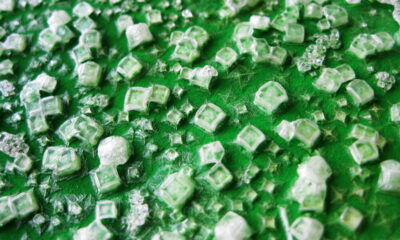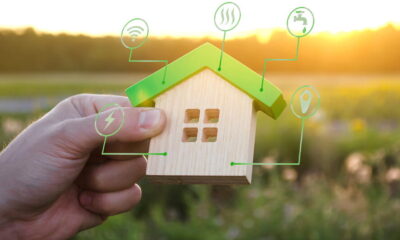

Economy
End-of-Life Estate Planning Tips for Eco-Friendly Property Owners
You may have worked your whole life to own a great eco-friendly home and other sustainable assets. Your heirs may want to live on your legacy as good stewards of the environment.
So, how do you leave your eco-friendly estate to them? You will need to have a good end-of-life estate planning process in place, which includes tax advantaged savings vehicles and a good will.
End-of-Life Planning Tips to Make Sure Your Heirs Get Your Eco-Friendly Property
Forbes has a great article on the work involved with leaving a sustainable legacy and planning your estate. Many of the guidelines are the same for people that would not own eco-friendly properties, but you should still follow them anyways.
Thinking about inheritance can make anybody shudder, especially if you don’t have a will prepared. However, taking a little time to plan your estate can prevent problems with the inheritance your children will receive and avoid fights once you are gone.
The first step to achieve this is to have a will, which is the document where you can establish what assets each heir will keep and even what conditions must be met to access them, always within legal parameters.
With this in mind, it is time to make decisions, such as how to distribute the inheritance and what to do according to your personal situation and that of your heirs.
Inheritance tax planning for eco-friendly estates
The tax planning of the will and the inheritance are vital to make sure that the inheritance will be distributed as you wish and that the tax impositions will not leave your heirs empty-handed. To do so, you will have to understand how the Inheritance and Gift Tax (ISD) works, the mortis causa transfers, and know how to leave your heirs the different assets and investment products you own in order to reduce the tax burden.
The most important thing to accomplish this is have the will well prepared. Otherwise, the inheritance will be divided in three parts, as established in the Civil Code:
The Legitimate will always be distributed among the forced heirs, who are the legal heirs in the following order: children and descendants, if any, parents, ascendants and descendants (grandchildren, grandparents and parents), the widow or widower, who will be entitled to one third of the inheritance, the siblings and in the absence of them, the rest of the relatives. If there are no relatives, it will be the State who will collect.
The third of improvement will also be distributed among the forced heirs and if there is no will, it will be distributed equally among them.
Finally, the third of free disposition will only apply if there is an inheritance. But how is this share of the disposition calculated? It is distributed perfectly equally among the heirs. In other words, if you want to be the one to distribute your inheritance, you need a will. Without this document, the law and the State will decide for you.
How to make an inheritance
Once you are aware that the preparation of the will is vital to leave the assets to your heirs and avoid having the government take a huge chunk through taxes, we will have to see how to distribute the inheritance. On some occasions, it is likely to be more worthwhile to pass on the assets during your lifetime by means of a donation, while on other occasions it may be more appropriate to leave them in the will.
Is it a good idea to leave the house in inheritance?
The house is the property that generates the most conflicts, partly because it is the one that is worth more money. From a strictly fiscal point of view, leaving the house in inheritance instead of donating it, your heirs will save a lot of taxes.
The tradeoff with saving on taxes is that you may be generating a problem for your descendants. In the end, they will have to decide what to do with the house and it is easy for discrepancies to arise if some want to rent and others want to sell, for example. What alternatives are there at this point? Liquidating the house during your lifetime and keeping the money in an account will not solve the biggest problem and will make your children pay more taxes, even though it is the most common way.
Two other options are to sell the house and go to live in rented housing, so that instead of the house you leave the remaining money or take out a reverse mortgage.
Finally, a compromise between the two previous options would be to reach an agreement of sale with a third person maintaining you the usufruct of the house until the death. If you sell the house and you are over 65 years old, you will not pay taxes and your heirs will receive money instead of a house to fight over.
Leave Your Eco-Friendly Property to Your Heirs
You worked hard to design and build an eco-friendly home. You committed your life to a sustainable lifestyle. You must follow these guidelines to make sure that your eco-friendly estate can be passed onto your heirs.


 Environment12 months ago
Environment12 months agoAre Polymer Banknotes: an Eco-Friendly Trend or a Groundswell?

 Features11 months ago
Features11 months agoEco-Friendly Cryptocurrencies: Sustainable Investment Choices

 Features12 months ago
Features12 months agoEco-Friendly Crypto Traders Must Find the Right Exchange

 Energy11 months ago
Energy11 months agoThe Growing Role of Solar Panels in Ireland’s Energy Future





















